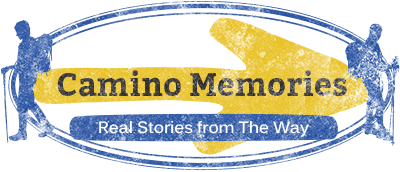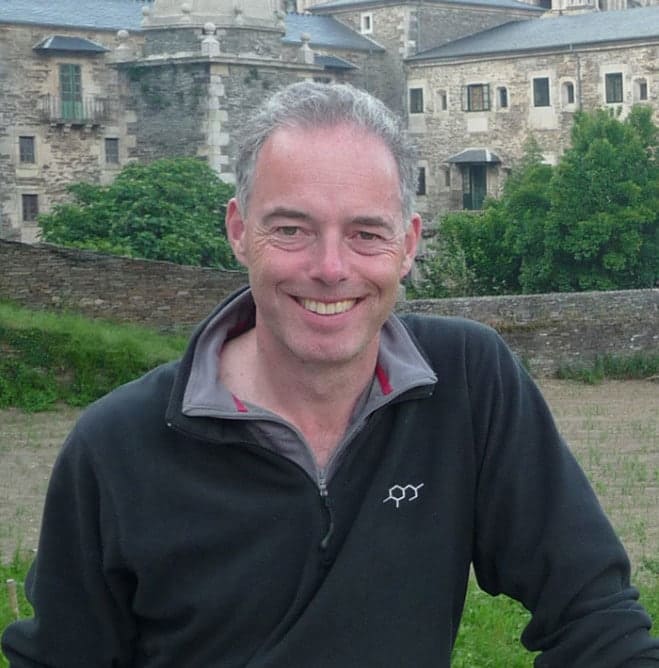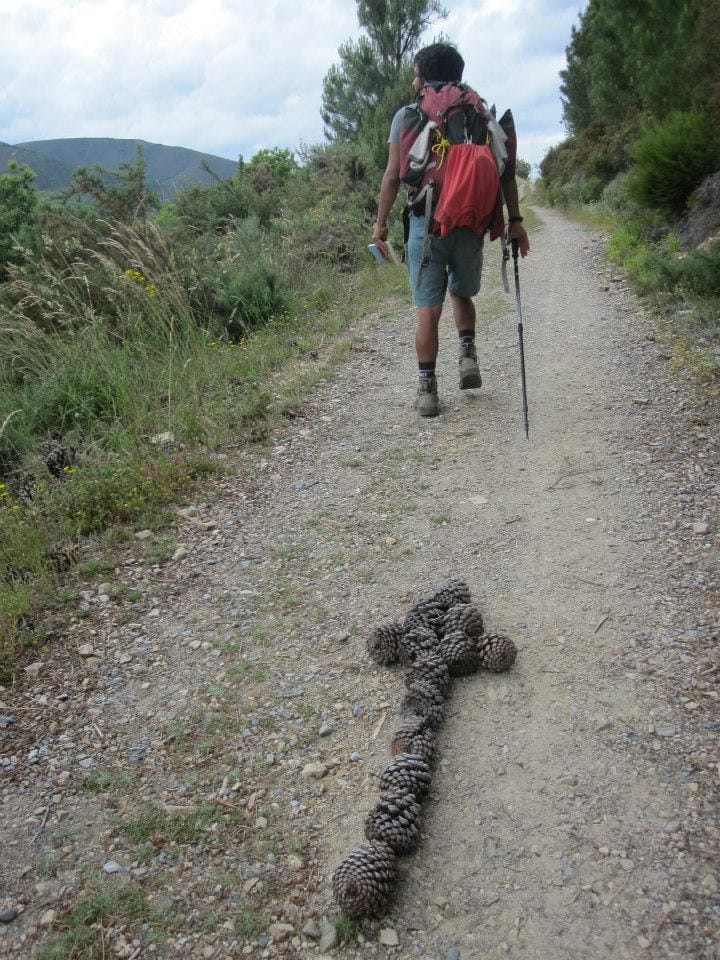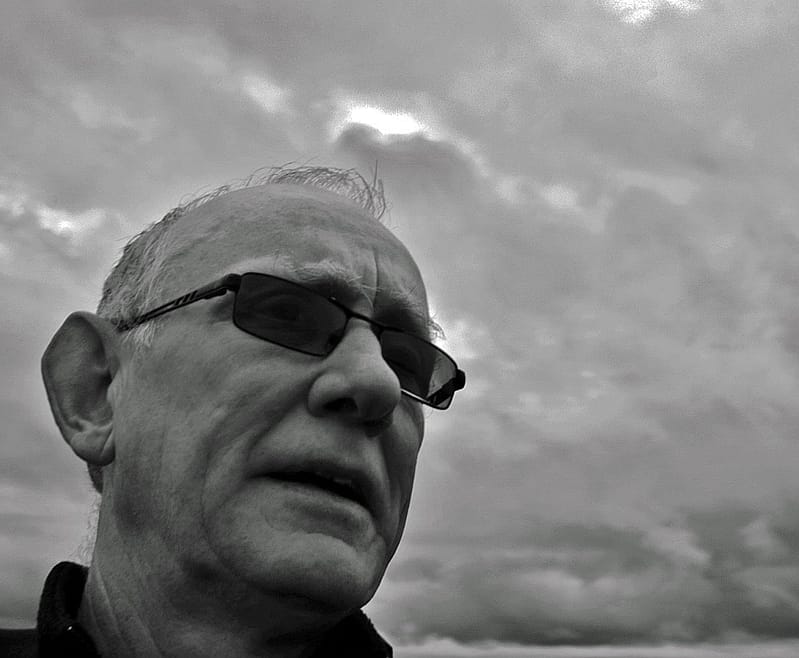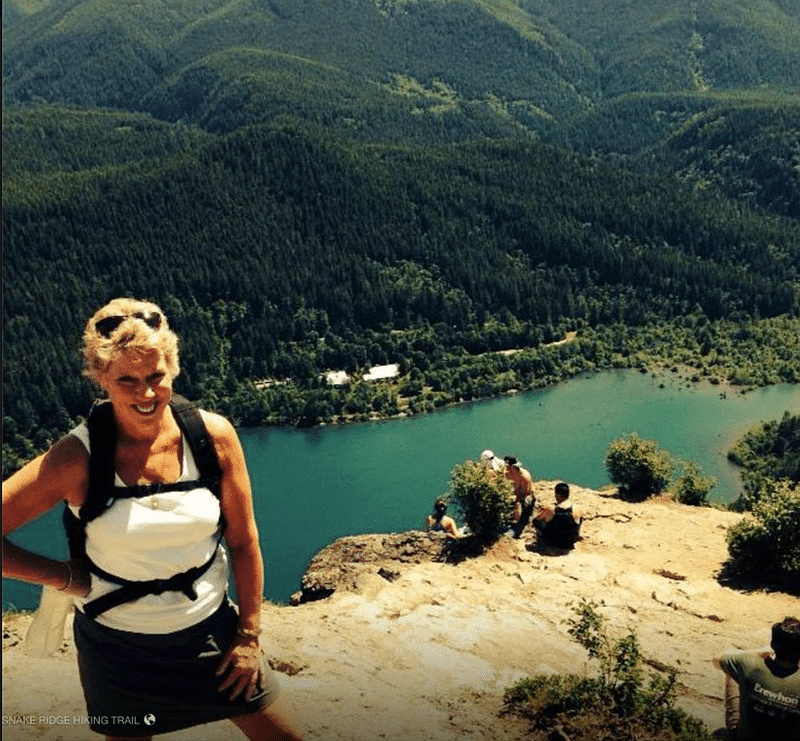“In May 2010, I found myself people-watching as I sat at a terraced cafe in the northern Spanish city of Burgos. I was in the city simply because I had been asked to plan, organise and deliver a week long tour of northern Spain by a couple of friends who had not seen each other for 20 years. I drove the car and showed them the sights whilst they reconnected and enjoyed the ambience, history and culture of Spain. These friends were exploring Burgos’ magnificent 800 year old Gothic cathedral, while I sat outside. For centuries, the cathedral has been a beacon of encouragement for those walking the pilgrimage road to Santiago de Compostela, a further 315 miles to the west. I had known of the Camino de Santiago for at least 15 years and had managed to build, over this period, a mini library of Camino books. I always knew I would walk the Camino one day. I just didn’t know when.
Well, the people I watched were the pilgrims walking by. I had never seen a pilgrim before. Beginning in the French Pyrenees, the 176 mile (284km) journey to Burgos would have taken most of them, at least, 12 days to cover. Some pilgrims were hobbling into town, with gritted teeth, as their blister-covered feet fulfilled their daily duty. The pilgrims displayed an immense sense of camaraderie and an amazing spirit of joy and happiness, despite any travails. I could only think this came from going on such an adventure and being away from the daily routine for 5 weeks. I received my “Call to the Camino” that day. As I sat drinking my coffee, looking at the different shapes, sizes, ages, fitness levels of the pilgrims, I knew I too could do this. I decided to resign from my uninspiring corporate world job. I committed myself to walking the whole length of the Camino in 2011. That’s my story of how I came to the Camino.
In April 2011, I took my first walking step in the French Pyrenean village of St. Jean Pied-de-Port. The Pyrenees mountains and 496 miles (798km) lay ahead. My transformation journey had begun. Well, in fact, it began 3 weeks previously when my back gave way and I collapsed onto the floor in a hotel room. My last corporate world business trip to Buenos Aires certainly was memorable. As I lay stuck on the floor, I wondered “was my Camino over before it had even begun?” Gazing up at the ceiling, I realised that this was my first Camino lesson and it began with a question: “What will I have to do differently if I am going to walk over the Pyrenees in 3 weeks time?”
After about an hour, I finally got myself crookedly standing up. For the following week, I walked around Buenos Aires at a snail’s pace and at the same angle as the Leaning Tower of Pisa. Whenever I contemplated the thought of the Pyrenees challenge that lay ahead, my inner wisdom always responded – “walk extra, extra, extra slowly over the Pyrenees”. The day arrived to take my first step. For once, I listened to myself (I had no other option as it was still very painful to walk) and the second footstep was an extra slow step. I discovered very quickly that going slowly and walking at my pace offered huge benefits. Firstly, I got the chance to meet everyone overtaking me. Secondly, I saw that despite us all being the same (we were all humans, walking, carrying rucksacks and going to the same destination) our attitudes were all completely different. My thoughts led me to predicting who was going to suffer because of their speedy pace and the amount of the load on their back. Over the days ahead, my guesses proved to be remarkably accurate.
One of my walking companions explained to me, in religious terms, the three transformational stages of the Camino. The first stage covers the experience of walking over the Pyrenees and the first week of walking. It represents “purgatory”. The body is suddenly facing new daily challenges; the need to let go of items that are too heavy to carry and the acceptance that new routines, beliefs and attitudes must be adopted if Santiago is going to be reached. Until these lessons are learned, the Camino may remain a very painful experience.
Once the first stage is completed, then the silence of the flat, barren, desert like table top central plateau of Spain called the “Meseta” must be crossed. This is the second stage or “death”. It is a 10-day journey where the “aloneness” of the landscape can force you to go within to acknowledge and face the things which perhaps, through the rapid pace of life, you never get the chance to consider. Crossing the “Meseta” can be a time of feeling lost, abandoned and insecure as you step through the vast, open, landscape. In personal transformation terms the second stage is the period of no longer being who you once were and you are not yet who you want to become.
Finally you enter the fertile, green and rich landscape of Galicia region, the capital of which is Santiago de Compostela. This is the third stage or “resurrection”. Here, near journey’s end, new purpose, new ideas and new creativity emerge. You acknowledge your re-discovered strengths and your increased self-belief received from confronting and overcoming the challenges. With this, plus the positive connection with others and the act of just trusting to the future, far-flung dreams feel they can become real possibilities.
My Camino reminded me of who I really am. I have always loved walking and trekking and the lure of the Spanish culture, language and history has fascinated me ever since I was a kid. I also enjoyed inspiring people to step out of their comfort zone, to have an adventure and to create the life they want. But this was not the life I was living.
It is said the real Camino begins the moment you finish your Camino journey in Santiago de Compostela. I committed to myself in Santiago to begin my own transformation journey to create and live a life of fulfillment.
I returned from the Camino passionately believing everybody should know about and experience what the Camino has to offer in one form or another. I embarked on study in a life coaching programme (CoachU), a 6 month inspirational speaking programme (public speaking has always been my greatest fear – the fear went on the day I stood up and spoke at Speaker’s Corner in Hyde Park and coincidentally, it was exactly one year to the day that I had walked into Santiago to finish my Camino) and attended courses run by the University of Santiago de Compostela on the Camino.
Now, as a guide and transformation coach, I combine my knowledge and love of Spain with my first hand understanding of the challenges faced by people who want to take the transformation journey to reinvent themselves or take a completely new path with their life. I show people the steps necessary to leave their comfort zone, to design the future life they wish to live and to change their beliefs, attitudes and behaviours in order to survive and navigate across what may feel, in the beginning, to be a dangerous, frightening and alien environment. Everyone deserves the chance to experience such a wonderful transformation, and I want to help.”
-Adam, UK
